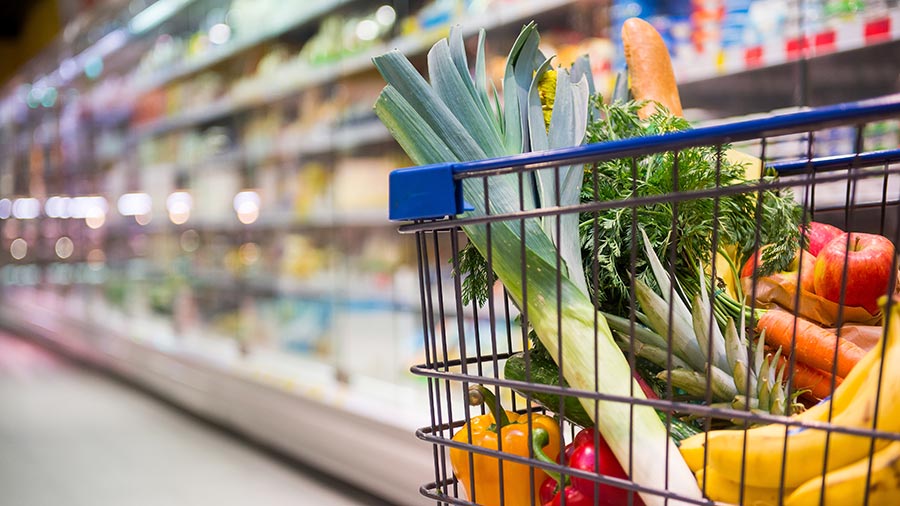Farm leaders reject claims retailers aren’t ‘profiteering’
 © benjaminnolte/Adobe Stock
© benjaminnolte/Adobe Stock Claims from several of the UK’s major retailers that they are not engaged in “grotesque profiteering” have been rejected by farm leaders.
Bosses from the “big four” – Tesco, Asda, Sainsbury’s and Morrisons – faced accusations of “price pegging” and that they were operating as a “cartel” during a testy hearing of the House of Commons Business and Trade Committee this week.
See also: Agflation may have peaked, says Andersons
The supermarket chiefs attempted to defend their position, with Tesco commercial director Gordon Gafa claiming the retailer only makes 4p profit in every pound, while Sainsbury’s food and commercial director, Rhian Bartlett, said it makes less than 3p in the pound.
Asda’s chief commercial officer, Kris Comerford, pointed to a 25% fall in full-year profitability in 2022, while Morrisons said its profits fell 50% in the same year.
Retail reality check
But George Dunn, chief executive of the Tenant Farmers’ Association, told Farmers Weekly he wanted to see the claims of 3p and 4p returns in the pound “tested against the reality” of the situation on fresh produce including meat, eggs, milk, fruit and vegetables.
“The gaps between retail and farmgate prices on these products are huge and there is little more than a bit of packaging, some transport and a bit of butchery on the meat side involved in getting items onto retail shelves,” he said.
“It may be different in dealing with canned foods, branded household goods and heavily processed items where retailers are having to pay more and take a lower return or even no return.
“Farmers must not lose out in receiving adequate returns to compensate retailers for lower returns across other lines.”
The crisis in the egg industry was another concern raised by MPs, who noted producer prices had increased 14%, while on-shelf prices had gone up 29%.
NFU national poultry board chairman James Mottershead said retailers had taken some positive steps to support the sector in recent months, such as longer-term contracts and cost-of-production trackers.
But he added: “Greater transparency and a fairer share of risk and reward is the only way we will build more resilient supply chains.”
Bonuses
Mr Gafa also faced criticism during the hearing over Tesco’s share dividends being increased by 89% – from 5.8p in 2018-19 to 10.9p this year – while Ms Bartlett was grilled over the decision to award Sainsbury’s chief executive Simon Roberts £4m in bonuses on top of his salary.
These decisions were taken at a time when farmers are facing unprecedented inflationary pressures, which according to groceries code adjudicator (GCA) Mark White, who also gave evidence to the committee, are forcing some out of business.
In his latest survey, published last week, the GCA found 91% of suppliers had asked for a cost price increase (CPI) in the past 12 months.
“I was disappointed that those who experienced either a refusal to consider a CPI or an unreasonable delay in agreeing a CPI rose from 26% in 2022 to 28%,” he said.
Explosion in late and failed payments across food sector
Businesses across the food sector are struggling to remain operational amid soaring costs, with late and failed payments to suppliers doubling in the first quarter of this year.
New data from Atradius, a trade-credit insurer, found claims for late and failed payments on dairy products had increased by more than 1,000% year-on-year.
For live animals, the increase over the same time frame was 600%, while fruit and vegetables saw a 156% rise.
George Panzaris, senior underwriter at Atradius, said: “The reality is many businesses are facing significant challenges to remain operational.
“Our data paints a bleak picture, with the number of claims we received in the food sector for late and failed payments doubling in the first quarter of this year compared to last year, indicating businesses are struggling with cashflow.”
This follows a relatively subdued 2021 when businesses benefited from government support put in place during the pandemic. With no such support this year, firms are bracing themselves.
